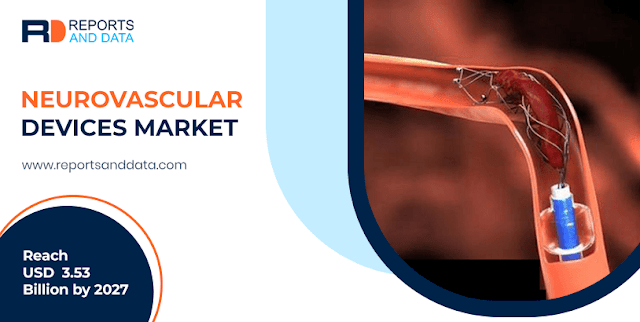According to the current analysis
of Reports and Data, the global Clinical
Chemistry Analyzers Market was valued at USD 10.48 Billion in 2018 and
is expected to reach USD 15.91 Billion by the year 2026, at a CAGR of 5.7
percent. Clinical chemical analyzers are the computerized equipment used to
analyze the stages of sugar and protein in blood. Owing to their accuracy and
time efficiency, these devices are used for the analysis of various diseases
such as diabetes, hyperlipemia, among others.
Increase in incidences of chronic
lifetime diseases, and an increasing aging population are the factors that
drive the global clinical chemistry analyzers market during the forecast
period. The technological advancements in clinical chemistry analyzers such as
StaRRsed Inversa automated erythrocyte sedimentation rate (ESR) analyzer,
computer-assisted interpretation, and artificial intelligence have enabled
large scale testing, have led to early-stage disease detection of diseases in
the various areas such as oncology, gynecology, & endocrinology. Moreover,
consistent efforts by healthcare organizations to increase the reliability of
data fuels the demand for clinical chemical analyzers. Moreover, increasing
awareness regarding preventative healthcare and specialized diagnostic methods,
and rising healthcare expenditure are the factors expected to propel the market
growth during forecast period. The Clinical chemistry analyzers market is much
fragmented and includes a large number of manufacturing giants as well as
emerging players. Additionally, the emerging players have a good opportunity to
enter the clinical chemistry analyzers market, owing to developments in the
market and high demand from end-use industries.
To identify the key trends in
the industry, click on the link below:
https://www.reportsanddata.com/report-detail/clinical-chemistry-analyzers-market
https://www.reportsanddata.com/report-detail/clinical-chemistry-analyzers-market
Further key findings from
the report suggest
- Growing demand for clinical chemistry analyzers for
various applications such as monitoring disease, drugs of abuse testing is
also resulting in high growth of the market
- Europe is expected to be the fastest growing market
segment with a CAGR of 5.9% owing to increased healthcare spending by
governments of the countries in Europe
- Based on the type of test, the lipid profile segment
is expected to grow at the highest CAGR of 6.3% during the forecast period
- Asia Pacific region is expected to witness lucrative
growth at CAGR of 5.2% owing to high prevalence rate of chronic diseases
and the growing geriatric population in the region.
- However, the high cost of analyzers and risk of
result uncertainty are some of the restraining factors for the clinical
chemistry analyzers market growth over the forecast period.
- Key participants include Roche, Thermo Fisher,
Johnson & Johnson, and Siemens, Beckman Coulter
Request For FREE Sample Copy of this Research Report at: https://www.reportsanddata.com/sample-enquiry-form/1812
For the purpose of this report,
Reports and Data has segmented the Clinical Chemistry Analyzers market on the
basis of product, test type, end use, and region:
Product (Revenue, USD Million;
2016–2026)
- Analyzers
- Small
- Medium
- Large
- Very Large
- Reagents
- Calibrators
- Controls
- Standards
- Others
- Others
Test Type (Revenue, USD
Million; 2016–2026)
- Basic Metabolic Panel
- Electrolyte Panel
- Lipid Profile
- Renal Profile
- Thyroid Function Panel
- Specialty Chemical Panel
End Use (Revenue, USD Million;
2016–2026)
- Hospital
- Academic Research Centers
- Diagnostic Laboratories
- Others
Regional Outlook (Revenue in
USD Million; 2016–2026)
- North America
- U.S.
- Canada
- Europe
- Germany
- France
- UK
- Spain
- Italy
- Rest of the Europe
- Asia Pacific
- China
- India
- Japan
- Rest of Asia-Pacific
- Middle East & Africa
- Latin America
- Brazil
Make an Inquiry at: https://www.reportsanddata.com/make-enquiry-form/1812





No comments:
Post a Comment